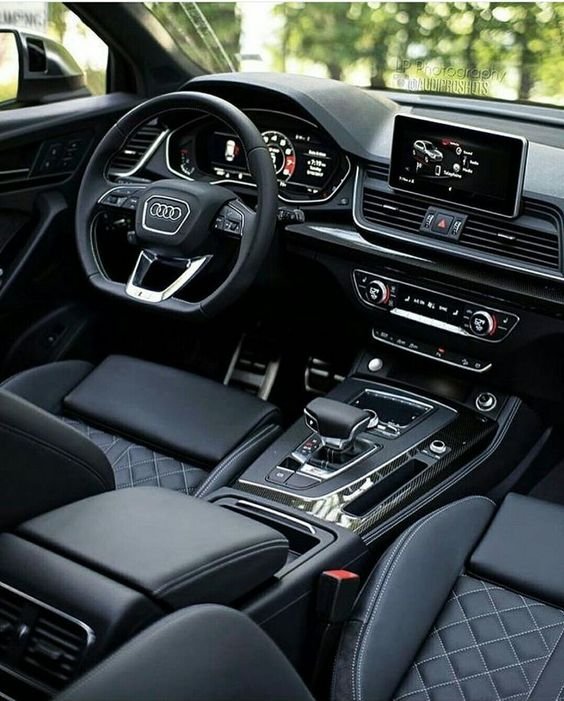
Modifying a car can be tempting for many car enthusiasts who want to enhance their vehicle’s performance, improve its aesthetics, or make it unique. From adding aftermarket exhaust systems to installing custom body kits, the possibilities for car modifications seem endless. However, while car modifications might seem like an exciting way to personalize your ride, they often come with several downsides that can outweigh the benefits. In many cases, modifying your car can lead to unforeseen problems, legal issues, and financial setbacks.This article explores the key reasons why modifying your car can be a bad idea, helping you make an informed decision before altering your vehicle.
1. Legal and Insurance Issues
One of the most significant drawbacks of modifying your car is the potential legal and insurance complications that can arise. Many car modifications, especially those that affect performance, emissions, or safety, may not comply with local laws and regulations.
- Legal Compliance: Certain modifications, such as altered exhaust systems, tinted windows, or changes to the suspension, may violate local laws. If your vehicle does not meet the required safety or emissions standards, you could face fines, penalties, or even have your car impounded.
- Insurance Impact: Modifying your car can also affect your insurance coverage. Many insurers consider modifications a higher risk, which can result in increased premiums or a refusal to provide coverage. In some cases, your policy may become void if you fail to disclose the modifications to your insurer. This means you could be left without coverage in the event of an accident or theft.
2. Decreased Resale Value
While you might think that modifying your car will make it more appealing, it often has the opposite effect when it comes to resale value. Most car buyers prefer vehicles that are as close to the original factory condition as possible, and modifications can make them wary of potential issues.
- Narrow Market Appeal: Modifications typically cater to specific tastes, which can significantly limit the pool of potential buyers. For example, a custom paint job or aftermarket body kit might not appeal to someone looking for a standard vehicle.
- Perceived Reliability Issues: Buyers may associate modifications with aggressive driving or poor maintenance, leading them to assume the car has been driven hard or improperly cared for. This perception can deter potential buyers and result in a lower resale value.
3. Warranty Voidance
If your car is still under warranty, modifying it can lead to the warranty being voided by the manufacturer. Most warranties cover repairs and replacements for specific components, but modifications can alter how these components perform or interact, resulting in the manufacturer refusing to honor the warranty.
- Manufacturer Policies: Many manufacturers have strict policies regarding modifications, especially when it comes to the engine, transmission, suspension, or electronics. If you install aftermarket parts or make changes that affect these systems, the manufacturer may claim that any issues are due to the modifications and refuse to cover repairs.
- Costly Repairs: Without a warranty, you will be responsible for the full cost of repairs or replacements, which can be expensive, especially for complex components like the engine or transmission.
4. Potential Safety Risks
Modifying your car can introduce potential safety risks, particularly if the modifications are not done professionally or use substandard parts. Certain modifications, such as altering the suspension, brakes, or engine tuning, can affect the vehicle’s handling, stability, and overall safety.
- Compromised Vehicle Integrity: Modifications that change the structural components of the vehicle, such as lowering the suspension or widening the tires, can compromise its integrity and safety. These changes can affect how the car responds in emergencies or during high-speed maneuvers, increasing the risk of accidents.
- Improper Installation: If modifications are not installed correctly, they can fail at critical moments, leading to accidents or damage. For example, an improperly installed aftermarket exhaust system could leak toxic fumes into the cabin, or a poorly fitted spoiler could detach at high speeds.
5. Reduced Reliability and Performance
While some modifications aim to enhance performance, they can often have the opposite effect, reducing the vehicle’s reliability and longevity. Aftermarket parts may not be designed to the same standards as original equipment manufacturer (OEM) parts, leading to compatibility issues or premature wear.
- Increased Wear and Tear: Modifications that increase power output, such as turbocharging or supercharging, put additional stress on the engine, transmission, and drivetrain components. This can lead to increased wear and tear, higher maintenance costs, and a greater likelihood of mechanical failures.
- Imbalanced Performance: Modifying one aspect of the car without considering the entire system can lead to imbalanced performance. For example, adding a powerful engine upgrade without upgrading the brakes, suspension, or tires can create a vehicle that accelerates quickly but is challenging to control or stop safely.
6. Higher Maintenance Costs
Modifications can lead to higher maintenance costs over the long term. Custom parts often require specialized knowledge for installation, tuning, and repair, which can increase labor costs and make finding a qualified mechanic more challenging.
- Specialized Parts and Labor: Aftermarket parts may require frequent adjustments, recalibration, or replacement, especially if they are not designed for long-term durability. Finding replacement parts can also be difficult and costly, particularly for unique or rare modifications.
- Frequent Repairs: Modified cars are often more prone to breakdowns due to the added stress on various components. Frequent repairs and the need for specialized maintenance can quickly add up, making the vehicle more expensive to own and operate.
7. Adverse Effects on Fuel Efficiency
Many modifications, especially those aimed at increasing performance, can have a negative impact on fuel efficiency. For example, increasing engine power output through turbocharging, supercharging, or ECU remapping typically results in higher fuel consumption.
- Increased Fuel Consumption: Performance enhancements often require more fuel to deliver the increased power, resulting in reduced miles per gallon (MPG). This can lead to higher fuel costs over time and reduce the car’s overall efficiency.
- Aerodynamic Changes: Modifications like body kits, spoilers, and wider tires can alter the vehicle’s aerodynamics, increasing drag and decreasing fuel efficiency. These changes can make your car less economical to drive, particularly on highways.
8. Challenges with Emissions Compliance
Many countries and states have strict emissions standards that vehicles must meet to be legally operated on the road. Modifying your car, especially the engine or exhaust system, can affect its emissions output, potentially making it non-compliant with local regulations.
- Emission Violations: Aftermarket exhaust systems, performance chips, or engine tuning modifications can increase the car’s emissions beyond permissible limits. This could result in your car failing emissions tests, leading to fines, penalties, or even being barred from road use.
- Legal Consequences: Non-compliance with emissions regulations can have severe legal consequences, including fines, mandatory repairs, and, in extreme cases, confiscation of the vehicle.
9. Negative Impact on Driving Experience
While modifications may seem appealing, they can sometimes negatively impact the driving experience. Changes to the suspension, steering, or exhaust system can alter the car’s handling, ride comfort, and noise levels, potentially making it less enjoyable to drive.
- Harsh Ride Quality: Lowering the suspension or adding stiffer springs may improve cornering but can also result in a harsh, uncomfortable ride, particularly on uneven roads or long journeys.
- Increased Noise: Modifications like performance exhausts or engine tuning can increase noise levels inside the cabin, leading to a less comfortable and more tiring driving experience over time.
10. Potential Warranty and Financing Issues
If you plan to finance your car, modifications can create issues with the financing agreement. Lenders may have clauses that restrict modifications to financed vehicles, as these changes could affect the car’s value, safety, and insurability.
- Void Financing Agreements: Modifying your car without the lender’s approval could violate the terms of your loan or lease agreement, potentially leading to penalties, repossession, or termination of the contract.
- Depreciation Concerns: Modified cars often depreciate faster than their unmodified counterparts. This could leave you with a car worth less than the outstanding loan balance, complicating matters if you decide to sell or trade in the vehicle.
Conclusion
While modifying your car can be a fun way to personalize your vehicle and enhance certain aspects of its performance, it is important to carefully consider the potential downsides. Legal issues, voided warranties, safety risks, increased costs, and reduced resale value are just some of the reasons why modifying your car might not be the best idea. Before making any changes, ensure you thoroughly research the modifications you plan to make, consult with professionals, and consider whether the potential benefits outweigh the risks. In many cases, keeping your car in its original condition may prove to be the smarter, safer, and more cost-effective choice.







